
Composition
Composition de la CIDH
Président: Roberta Clarke
Premier vice-président: Carlos Bernal Pulido
Deuxième vice-président: José Luis Caballero Ochoa
au premier rang, de gauche à droite: Carlos Bernal Pulido, Roberta Clarke, José Luis Caballero Ochoa
deuxième rangée de gauche à droite: Edgar Stuardo Ralón Orellana, Gloria Monique de Mees, Andrea Pochak, Arif Bulkan
Selon la Convention américaine relative aux droits de l'homme, la Commission est composée de sept membres qui doivent être des personnalités de haute moralité et possédant une compétence reconnue dans le domaine des droits de l'homme, élus à titre personnel par l'Assemblée générale de l'OEA à partir d'une liste de candidats proposé par les gouvernements des États membres. Chacun de ces gouvernements peut présenter jusqu'à trois candidats, ressortissants des Etats proposant ou l'autre État membre de l'OEA. Quand une triade est proposée, au moins l'un des candidats devra être un ressortissant d'un autre État que celui proposé. Les membres de la Commission sont élus pour quatre ans et peut être renouvelé une fois.

Roberta Clarke
La commissaire Roberta Clarke a été élue par l'Assemblée générale de l'OEA lors de sa période régulière de sessions, le 12 novembre 2021, pour un mandat de quatre ans, du 1er janvier 2022 au 31 décembre 2025. Militante de la justice sociale et de l'égalité des sexes, Roberta Clarke a dirigé les bureaux régionaux d'ONU Femmes en Afrique orientale et australe, en Asie-Pacifique, dans les Caraïbes et en Libye. Avant sa carrière aux Nations unies, elle était avocate à Trinité-et-Tobago. Elle s'est engagée dans la société civile aux niveaux national et international, notamment en tant que présidente du comité exécutif de la Commission internationale des juristes et présidente de la Coalition contre la violence domestique, Trinité-et-Tobago. Elle est présidente du comité sur le harcèlement de la Cour de justice des Caraïbes. Elle est citoyenne de la Barbade.

Carlos Bernal Pulido
Le commissaire Carlos Bernal Pulido a été élu lors de la 51e session ordinaire de l'Assemblée générale de l'OEA, le 12 novembre 2021, pour un mandat de quatre ans, du 1er janvier 2022 au 31 décembre 2025. Il est professeur à la faculté de droit de l'Université de Dayton (Ohio, États-Unis) et à l'Université de la Sabana (Colombie). Il a été magistrat à la Cour constitutionnelle de Colombie (2017-2020). Il est titulaire d'une licence en droit de l'Universidad Externado de Colombia, d'un doctorat en droit de l'Universidad de Salamanca, en Espagne, ainsi que d'une maîtrise et d'un doctorat en philosophie de l'University of Florida, aux États-Unis. Il a été professeur à l'Universidad Externado de Colombia, à l'université Macquarie de Sydney, en Australie, et à l'université de Floride ; professeur invité aux facultés de droit de l'université de la Sorbonne de Paris, de Paris X (Nanterre) et de Leon (Espagne), et chercheur invité aux facultés de droit de l'université de Yale, du Kings' College de Londres et de l'institut Max Planck pour le droit public comparé et le droit international en Allemagne.
Il est l'auteur de livres, d'articles de journaux et de chapitres sur des sujets liés à la protection des droits de l'homme et des droits fondamentaux, au constitutionnalisme démocratique, à la création et au changement constitutionnel, à l'ontologie du droit et aux fondements théoriques de la responsabilité civile et de la responsabilité de l'État. Il est citoyen de Colombie.
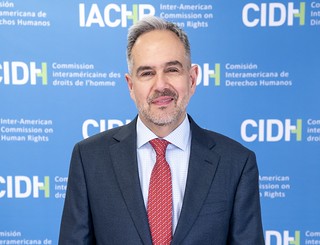
José Luis Caballero Ochoa
Le commissaire Caballero Ochoa a été élu lors de la réunion du Conseil permanent de l'OEA le 5 septembre 2023, avec un mandat qui court jusqu'au 31 décembre 2025. Il est titulaire d'un diplôme en droit de l'Instituto Tecnológico de Monterrey, d'une maîtrise en droit de la Faculté de droit de l'Université nationale autonome du Mexique et d'un doctorat en droit de l'Université nationale d'enseignement à distance (UNED) en Espagne. Il a une longue carrière dans le monde universitaire et l'enseignement, et a été directeur du département de droit de l'Universidad Iberoamericana de 2015 à 2021. Il est membre du Système national des chercheurs du Conseil national des sciences, des lettres et de la technologie du Mexique depuis 2009 et de la Commission internationale des juristes depuis 2021. Il a publié près d'une centaine de chapitres de livres et d'articles dans des revues spécialisées, ainsi que des livres publiés par des éditeurs juridiques jouissant d'une grande renommée internationale. En outre, il a fait partie de conseils techniques et citoyens pour la définition des lignes d'action des institutions publiques pour le respect, la garantie et la promotion des droits de l'homme. Il est citoyen du Mexique.
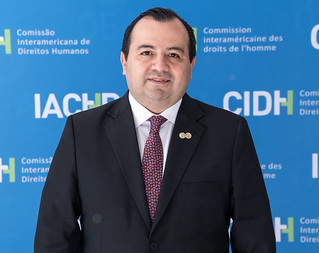
Edgar Stuardo Ralón Orellana
Le commissaire Edgar Stuardo Ralón Orellana a été élu par l'Assemblée générale de l'OEA lors de sa 49e période ordinaire de sessions, le 28 juin 2019, pour un mandat de quatre ans, du 1er janvier 2020 au 31 décembre 2023. Il est avocat constitutionnel au Guatemala. Il est actif professionnellement depuis 20 ans et, en tant qu'expert juridique, il s'est spécialisé dans le droit constitutionnel. Il a combiné l'enseignement universitaire et le contentieux et fait autorité en matière de droit constitutionnel dans son pays d'origine. Sa carrière dans le domaine des droits de l'homme est marquée par la défense des droits individuels tels que le droit à la vie, les libertés civiles et les droits politiques. Il est citoyen du Guatemala.

Arif Bulkan
Arif Bulkan a été nommé commissaire par la 53e Assemblée générale de l'OEA pour la période allant de janvier 2024 à décembre 2027. Avocat et universitaire, il a enseigné, publié et pratiqué le droit constitutionnel, les droits de l'homme et le droit pénal, et a été juge ad hoc à la Cour d'appel du Belize. Dans son travail d'avocat et d'activiste, il a contribué à la réforme juridique au nom de diverses communautés, notamment les peuples indigènes, les personnes LGBTI, les personnes handicapées et les personnes vivant avec le VIH/sida. Il a cofondé le University of the West Indies Advocacy Project (U-RAP), qui a mené avec succès deux affaires révolutionnaires sur les droits OSIG dans les Caraïbes. Il a également été membre expert de la commission des droits de l'homme des Nations unies et en a assuré la vice-présidence. Pour ses contributions publiques et civiques, il a reçu le prix Anthony Sabga pour les Caraïbes, ainsi que le titre de Champion du changement PANCAP/CARICOM. Il a également été maître de conférences à la faculté de droit de l'université des Indes occidentales et a occupé les postes de vice-doyen et de doyen par intérim sur le campus de St Augustine. Il est citoyen de la Guyane.

Andrea Pochak
Andrea Pochak a été nommée commissaire par la 53e Assemblée générale de l'OEA pour la période allant de janvier 2024 à décembre 2027. Avocate et militante, spécialisée dans les droits de l'homme, originaire de la République d'Argentine, elle possède une vaste expérience du système interaméricain des droits de l'homme. Tout au long de sa carrière, elle a occupé diverses fonctions publiques et a été membre d'importantes organisations de défense des droits de l'homme. À cet égard, elle a été sous-secrétaire à la protection et aux liaisons internationales du Secrétariat national des droits de l'homme, membre de la Commission nationale des réfugiés, directrice générale des droits de l'homme du ministère public et responsable des projets de coopération technique de l'Institut des politiques publiques en matière de droits de l'homme du MERCOSUR. Elle a également été directrice adjointe du Centre d'études juridiques et sociales (CELS) et représentante pour l'Argentine du Centre pour la justice et le droit international (CEJIL). Elle est professeur invité et auteur d'articles sur les droits de l'homme, le droit pénal et l'administration de la justice. Elle est citoyenne Argentine.
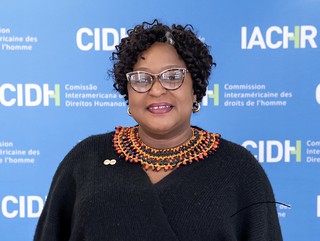
Gloria Monique de Mees
La Commissaire Gloria de Mees a été élue par l'Assemblée générale de l'OEA lors de sa 53e période régulière de sessions, pour un mandat de quatre ans, du 1er janvier 2024 au 31 décembre 2027. Elle est chargée de cours sur les droits de l'homme à l'Université Anton de Kom du Suriname. En tant qu'experte juridique, elle s'est notamment intéressée aux droits collectifs des peuples indigènes et tribaux et aux droits humains des personnes âgées. Au cours de sa carrière dans le domaine des droits de l'homme, elle s'est distinguée en conseillant le pays sur le système interaméricain des droits de l'homme, la législation et la politique, et en défendant les droits des communautés marginalisées. En ce sens, elle a été membre du groupe d'experts chargé de conseiller l'Assemblée nationale de la République du Suriname sur le projet de loi relatif aux droits collectifs des peuples indigènes et tribaux ; elle a été secrétaire du bureau de l'agent de l'État auprès de la Commission interaméricaine des droits de l'homme et de la Cour interaméricaine des droits de l'homme ; elle a également participé activement à la formulation du projet de loi portant création de l'Institut national des droits de l'homme ainsi qu'à la rédaction des rapports nationaux destinés à plusieurs organes de surveillance des traités des Nations unies. Elle est citoyenne du Suriname.

le commissaire Roberta Clarke
- Rapporteur pour femmes ; et personnes LGBTI.
- Rapporteur pour Brésil; États-Unis; Guyane; et Haïti.

le commissaire Carlos Bernal Pulido
- Rapporteur pour personnes handicapées.
- Rapporteur pour Costa Rica; Le Salvador; Paraguay; et Trinité-et-Tobago.

le commissaire José Luis Caballero Ochoa
- Rapporteur pour défenseurs; et enfants et les adolescents.
- Rapporteur pour Antigua-et-Barbuda; Belize; Bolivie; Chili; et Colombie.

le commissaire Edgar Stuardo Ralón Orellana
- Rapporteur pour personnes privées de liberté.
- Rapporteur pour Argentine; Cuba; Equateur; Pérou; République dominicaine; et Suriname.

le commissaire Arif Bulkan
- Rapporteur pour peuples indigènes.
- Rapporteur pour Canada; Dominique; Jamaïque; Nicaragua; et Saint-Vincent-et-les-Grenadines.

le commissaire Andrea Pochak
- Rapporteur pour mémoire, vérité et justice; et mobilité humaine.
- Rapporteur pour Bahamas; Guatemala; Honduras; Mexique; et Uruguay.

le commissaire Gloria Monique de Mees
- Rapporteur pour personnes d'ascendance africaine; et droits des personnes âgées.
- Rapporteur pour Barbade; Grenade; Panama; Saint-Christophe-et-Niévès; Sainte-Lucie; et Venezuela.
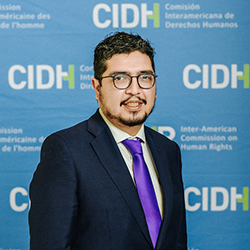
Pedro José Vaca Villarreal
- Rapporteur spécial pour la liberté d'expression.
- Processus de sélection du Rapporteur spécial
- communiqués de presse
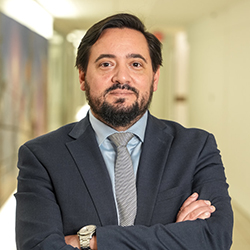
Javier Palummo Lantes

Julissa Mantilla Falcón
Pérou
2020 - 2023
Commissioner Julissa Mantilla Falcón was elected by the General Assembly of the OAS during its 49th Regular Period of Sessions, on June 28, 2019, for a four-year term from January 1, 2020 through December 31, 2023. As a lawyer, she specializes in human rights and has a degree from the Pontifical Catholic University of Peru (PUCP), a diploma in Gender from the PUCP, and an LLM in International Human Rights Law from the London School of Economics and Political Science (LSE) at the University of London. She worked in the Peruvian Ombudspersons Office and was in charge of gender issues in the Commission for Truth and Reconciliation in Peru. She has served as an international consultant on transitional justice for UN Women. She is a professor at the Law School and the master’s degree in Human Rights at the PUCP and at the Academy on Human Rights and Humanitarian Law at the American University’s Washington College of Law. She has lectured internationally and authored several academic publications. She is a citizen of Peru.
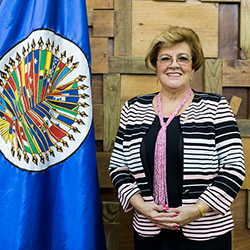
Esmeralda Arosemena de Troitiño
Panama
2016 - 2023
Commissioner Esmeralda Arosemena de Troitiño was re-elected by the General Assembly of the OAS during its 49th Regular Period of Sessions, on June 28, 2019, for a further four-year term from January 1, 2020 through December 31, 2023. In her first term as a commissioner (2016-2019), she served as President of the IACHR during 2019. She held office in Panama's judiciary: she was a Justice of the Supreme Court, of which she was vice-president; she also presided the Chamber for Criminal Cases, and was a judge on the High Court on children and adolescent affairs. She participated in the Special Commission that proposed constitutional reforms in Panama on 2011, and on the Commission that elaborated the Code of Constitutional Procedures in 2016. She has a degree in Philosophy, Letters and Education, with a specialization in Pedagogy, as well as a degree in Law and Political Science. Her post-graduate studies are in gender, with a specialization in family and childhood, as well as constitutional affairs. She is an academic and a professor at the University of Panama, the Superior Judicial Institute and Panama's Judicial Authority. She collaborates with the Public Prosecutor's Office School with regards to the new criminal system and in the subject of juvenile criminal justice. She is a consultant on childhood, adolescence, women and family for international organizations. She was also an ad honorem consultant in the elaboration, debates and approval of important legislation on these matters for Panama's legislative authority. She is a citizen of Panama.
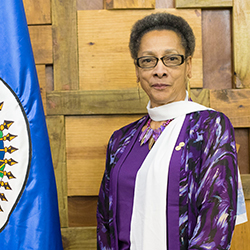
Margarette May Macaulay
Jamaïque
2016 - 2023
Commissioner Margarette May Macaulay was re-elected by the General Assembly of the OAS during its 49th Regular Period of Sessions, on June 28, 2019, for a further four-year term from January 1, 2020 through December 31, 2023. She had previously been elected by the General Assembly of the OAS for a first term as a commissioner that also ran for four years, January 2016-December 2019. President Macaulay holds a bachelor of laws degree from the University of London and is currently an attorney in private practice. She serves as Mediator in the Supreme Court of Jamaica and as Associate Arbitrator, as well as serving as Notary Public. She served as a Judge of the Inter-American Court of Human Rights from 2007 to 2012, contributing to the formulation of the Court’s Rules of Procedure. She is an honored member of the Gender Justice Legacy Wall of notable women’s rights advocates who have brought about important changes, which was launched in December 2017 at the United Nations in New York, during the Assembly of Ministers. She took part in the reform and drafting of laws in Jamaica and is well known as a strong proponent of and authority on women’s rights. She is a citizen of Jamaica.
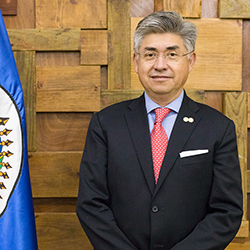
Joel Hernández García
Mexique
2018 - 2023
Commissioner Joel Hernández García was re-elected in the 51st Regular Period of Sessions of the OAS General Assembly, on November 12, 2021, for four years, from January 1, 2022, to December 31, 2025. His first term as Commissioner was elected on June 21, 2017, by the General Assembly of the OAS, for a period of four years that began on January 1, 2018, and ends on December 31, 2021. He holds a law degree from the Universidad Nacional Autónoma of Mexico and a master's degree in international law from the New York University School of Law. He is a member of the Board of Trustees of the United Nations Interregional Crime and Justice Research Institute and was a member of the Inter-American Juridical Committee during 2015-2018.
He is President of the Mexican branch of the International Law Association. In the foreign service of Mexico, he rose to the rank of ambassador and served in several positions. From 2011 to 2013, he served as Permanent Representative of Mexico to the OAS. In that capacity, he chaired the working group to strengthen the IAHRS. He has been a guest professor in the fields of international law and international organizations in various academic institutions. He is a citizen of Mexico.
Le commissaire Joel Hernández García a présenté sa démission de la CIDH le 3 août 2023.
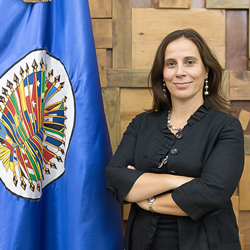
Antonia Urrejola Noguera
Chili
2018 - 2021
Commissioner Antonia Urrejola Noguera was elected by the General Assembly of the OAS on June 21, 2017, for a four-year term from January 1, 2018 through December 31, 2021. She graduated as a lawyer from the University of Chile and has a postgraduate diploma in Human Rights and Transitional Justice. She worked as a human rights advisor for the Chilean Presidency, mainly drafting and processing bills about institutions that deal with human rights, children, and sexual diversity. Following the return of democracy in Chile, she worked in the Special Commission for Indigenous Peoples, and later at the Ministry of National Assets and the Ministry of Planning and Cooperation, where she focused on the rights of indigenous peoples. She served as an advisor to the Ministry of the Interior, particularly concerning its Human Rights Program and matters of memory, truth, and justice. She was involved in drafting and processing various bills on national institutions that dealt with human rights, political detention, and torture, among other issues. She has also worked as a consultant for international organizations including the UNDP, the ILO, FLACSO, the JSCA, and the IDB on matters concerning ILO Convention 169 on Indigenous and Tribal Peoples and the Inter-American Human Rights System, among other topics. She was a principal advisor to the former Secretary General of the OAS between 2006 and 2011. She has been a guest professor at several universities and other institutions, on the subject of the Inter-American Human Rights System. She is a citizen of Chile.
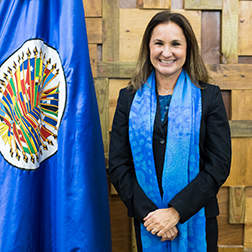
Flávia Piovesan
Brésil
2018 - 2021
Commissioner Flávia Piovesan was elected on June 21, 2017, by the General Assembly of the OAS, for a period of four years which began on January 1, 2018, and ends on December 31, 2021. She is a professor of Constitutional Law and Humans Rights at the Catholic University of São Paulo since 1991. She is also a PhD professor at the University of Buenos Aires, and a professor at the Academy on Human Rights and Humanitarian Law of the American University, in the United States. She conducted postdoctoral research in Harvard Law School, Oxford University and Max Planck Institute for Comparative Public Law and International Law, where she studied the regional human right protection systems. She has been a professor of human rights in the post-graduate programs of the Catholic University of Paraná and the Pablo de Olavide University in Seville, Spain. Commissioner Piovesan worked as Special Secretary of Human Rights in Brazil and chaired the National Commission for the Eradication of Slave Labour. She is the author of numerous academic publications and has worked as a consultant for international organizations. She also has given hundreds of lectures and made presentations at universities in several of countries. She is a citizen of Brazil.
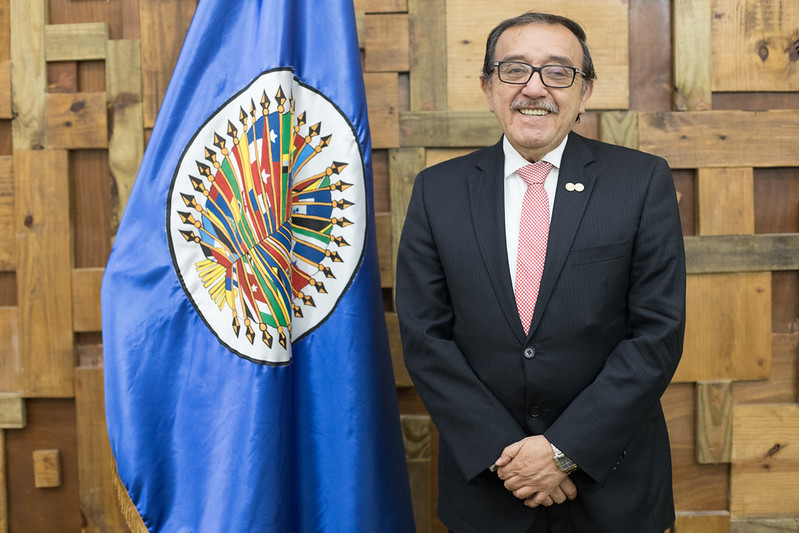
Luis Ernesto Vargas Silva
Colombie
2017 - 2019
Commissioner Luis Ernesto Vargas Silva was elected in May 2017 by the OAS General Assembly after the vacancy created by the resignation of Commissioner Enrique Gil Botero on March 9, 2017. His term ended on December 31, 2019. He is a Doctor of Law and Social Sciences from Colombia’s Universidad Libre, with a speciality in family law from that same institution, and has a doctorate in private law and personal and family law from the Universidad de Zaragoza. He was a magistrate of the Constitutional Court of Colombia, of which he chaired. He also presided the Special Monitoring Chamber for 8 years, which was created by the Constitutional Court to execute the structural sentence of protection of the rights of the displaced population due to the internal armed conflict. He is a university professor and author of essays, lectures and books on procedural and constitutional law. He is a citizen of Colombia.
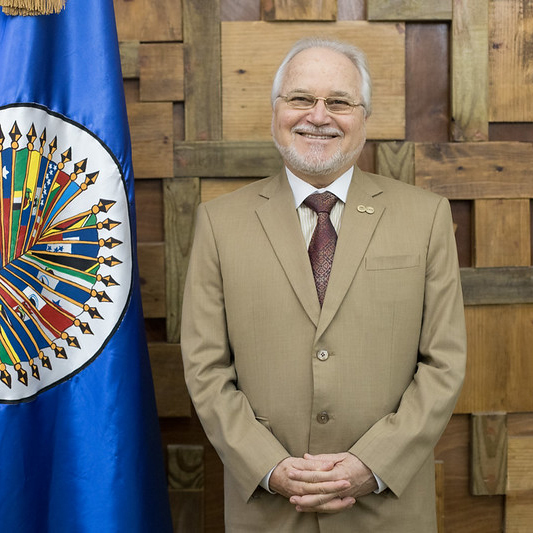
Francisco José Eguiguren Praeli
Pérou
2016 - 2019
Commissioner Francisco José Eguiguren Praeli was elected Commissioner on June 16, 2015, by the OAS General Assembly for a four-year term that ran from January 1, 2016, through December 31, 2019. He has a law degree from the Pontifical Catholic University of Peru, with a master's degree in Constitutional Law and a PhD in Humanities. He was Ambassador of Peru to the Kingdom of Spain from 2012 to 2014 and Minister of Justice. He is currently a legal consultant and adviser at both the national and international level, specializing in issues related to Constitutional Law, Administrative Law, and Human Rights. He is a citizen of Peru.

James L. Cavallaro
États-Unis
2014 - 2017
Commissioner James L. Cavallaro is a citizen of the United States. He was elected during the 43rd regular session of the OAS General Assembly in June 2013 for the prescribed four-year term, which began on January 1, 2014. In the 154th Period of Sessions in March 2015, he was elected First Vice-Chair. He became President on January 1, 2016, after former Commissioner Rose Marie Belle Antoine –who was the President- finished on December 31, 2015, the period for which she had been elected. James L. Cavallaro is a lawyer with an undergraduate degree from Harvard College, as well as a law degree from the University of California at Berkeley and a PhD in Human Rights and Development of the Universidad Pablo de Olavide, Sevilla, Spain. Currently, James L. Cavallaro is a Professor of Law at Stanford Law School and Founding Director of both the International Human Rights and Conflict Resolution Clinic at Stanford and the Stanford Human Rights Center. Previously, he was a Clinical Professor of Law at Harvard Law School and Executive Director of the Human Rights Program at Harvard. He founded the Brazil-based Global Justice Center and served as Director of the Brazil offices of Human Rights Watch and the Center for Justice and International Law (CEJIL). He is the author of dozens of articles, books, and other publications on human rights and the inter-American human rights system.
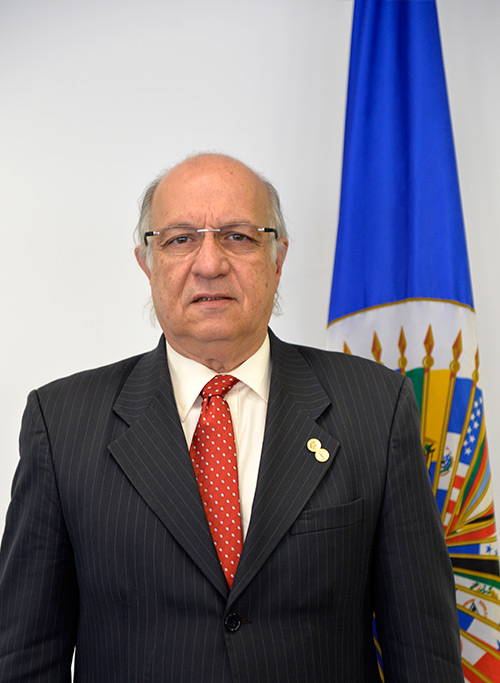
Paulo Vannuchi
Brésil
2014 - 2017
Commissioner Paulo Vannuchi is a citizen of Brazil. He was elected during the 43rd regular session of the OAS General Assembly in June 2013 for the prescribed four-year term, which began on January 1, 2014. Paulo Vannuchi is a political and union consultant. During his youth, he was imprisoned for five years due to his activities in the resistance to the military dictatorship in Brazil. He studied journalism at the University of São Paulo, where he received a Master’s Degree in Political Science. He was a member of the team that conducted the investigation “Brazil: Never Again”; was a cofounder of the Cajamar Institute; and was a political adviser to the national office of the Workers Party of Brazil. He also served as Executive Secretary of the National Coordinating Committee of the Lula for President Campaign in 1994 and 2002. He held various posts, including that of President, at the Citizenship Institute, coordinated by Luiz Inácio Lula da Silva. He served as Human Rights Minister in the Lula Government, between December 21, 2005 and December 31, 2010, as well as President of the Human Rights Defense Council; the National Commission for the Eradication of Slave Labor; and of the National Committee to Prevent and Combat Torture in Brazil. He is the author of articles and publications on political science and human rights, among other topics.
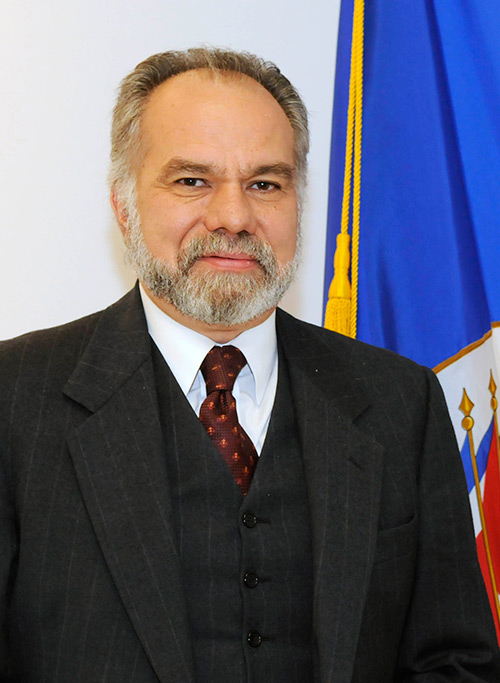
José de Jesús Orozco Henríquez
Mexique
2010 - 2017
Commissioner José de Jesús Orozco Henríquez is a citizen of Mexico. He was elected during the 39th regular period of sessions of the OAS General Assembly in June 2009 for the standard four-year term, which began on January 1, 2010. On June 6, 2013, the General Assembly reelected him for a second term, which will begin on January 1, 2014 and end on December 31, 2017. He was elected President of the Commission during the 144th Period of Sessions, in March 2012, and reelected during the 147th Period of Sessions, in March 2013. He is a researcher in constitutional law, human rights, the judiciary, and comparative law, among other areas, at the Legal Research Institute of the National Autonomous University of Mexico (UNAM). Previously, he served for 16 years as a Magistrate on Mexico's highest electoral courts, first in the Central Chamber of the Federal Electoral Court and then in the Higher Chamber of the Electoral Court of the Judiciary. He earned a Doctor of Law degree with honors from UNAM, and a Master of Comparative Law from the University of California, Los Angeles, as well as Doctor Honoris Causa for San Martín de Porres University in Peru, and for the Autonomous University of Coahuila, Mexico. He is the author or co-author of 8 books and the coordinator or editor of another 15, and he has written more than 100 articles for academic publications.

Enrique Gil Botero
Colombie
2016 - 2017
Commissioner Enrique Gil Botero is a citizen of Colombia. He was elected on June 16, 2015, by the OAS General Assembly, for a 4-year mandate that started on January 1, 2016 and was scheduled to end December 31, 2019. On March 9, 2017, he presented his letter of resignation to the IACHR , after his designation as Secretary of Justice in his country. Enrique Gil Botero has a degree in Law and Political Science from Antioquia University. He was Magistrate of the Colombian State Council, a trial lawyer before the Chamber for Administrative Litigation from 1984 to 2006, a founding member of the Institute for Civil and State Responsibility of Antioquia, and President of the Council of State from April 2008 to February 2009. He received the José Ignacio de Márquez gold medal as the best judge of the Court of Administrative Law in Colombia, 2009. He is professor of Liability Extra-Contractual of the state at several universities in Colombia and lectures nationally and internationally. Furthermore, he has been judge of important rulings related on the protection, defense and redress for redress for violations on human rights. He is author of several works on tort law, constitutional law and a treaty of Liability Extra contractual of the State, with translation in French, as well as on articles in magazines and publications on the subject of human rights and state responsibility.
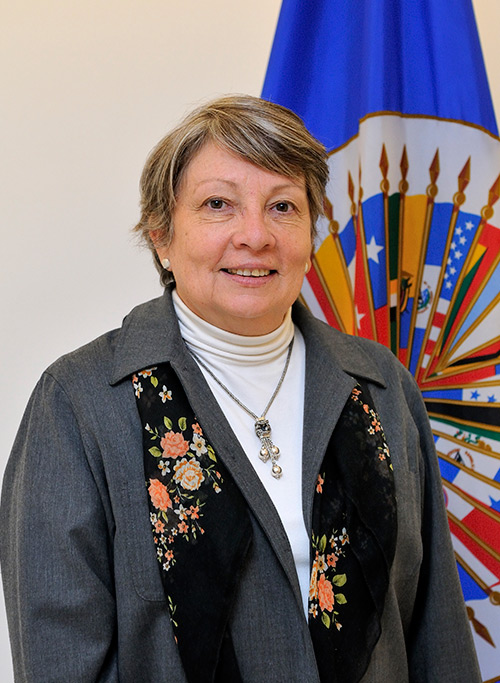
Rosa María Ortiz
Paraguay
2012 - 2015
Commissioner Rosa María Ortiz is a citizen of Paraguay. She was elected at the 41st OAS General Assembly in June 2011 for the standard four-year term, which began on January 1, 2012. She graduated in social communications media and is an expert in children’s human rights. She has been Vice-President of the United Nations Committee on the Rights of the Child and adviser on human rights and cultural diversity for the Paraguayan Presidency’s National Secretariat of Culture. She is founder and member of several human rights organizations, including Decidamos, Global, Tekoha, Callescuela and Workshop on Communication and Popular Education. In 2003 she was recognized with the award Paraguayan Women of the Paraguayan Presidency’s Women’s Secretariat, and in 2010 she received the award Peter Benenson for the Defense of Human Rights from the Paraguay Section of Amnesty International. During Alfredo Stroessner’s dictatorship, she worked through ecumenical organizations in favor of the political prisoners of her country. Commissioner Ortiz has offered numerous conferences, workshops and has written articles on the rights of children.
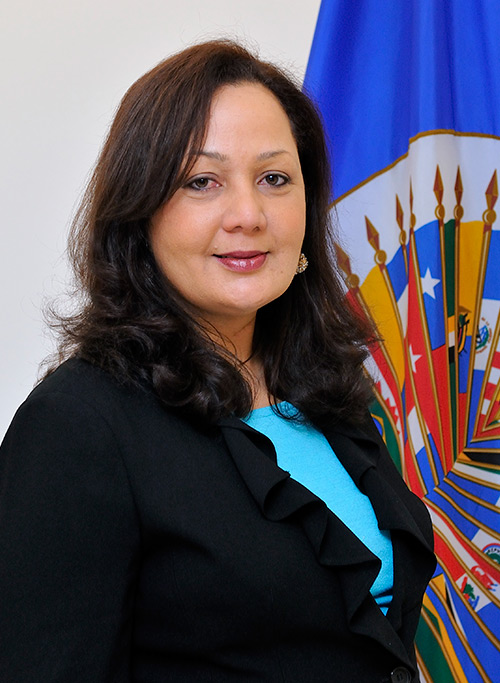
Rose-Marie Belle Antoine
Trinité-et-Tobago
2012 - 2015
Commissioner Rose-Marie Belle Antoine has dual citizenship of Saint Lucia and Trinidad and Tobago. She was elected at the 41st OAS General Assembly in June 2011 for the standard four-year term, which began on January 1, 2012. She was elected President of the Commission during the 154th Period of Sessions, in March 2015. She had also been First Vice-President, from March 2014 to March 2015. She is a lawyer, Professor and Dean of the University of the West Indies, specializing in human rights, financial law, comparative law, administrative law, public service law, discrimination law and labor law. She has served as senior legal advisor to the governments of the Commonwealth Caribbean and to governments outside of the region, such as the UK, Venezuela, USA and Canada, as well as to international and regional organizations. She has written books and articles and drafted laws on a wide range of topics, including discrimination, juvenile justice, women’s rights, sexual harassment, trafficking in persons. She is an Oxford Commonwealth Scholar and a Cambridge Pegasus Scholar, holding a doctorate from Oxford University, an LL.M. from Cambridge and an LL.B. from the University of the West Indies.
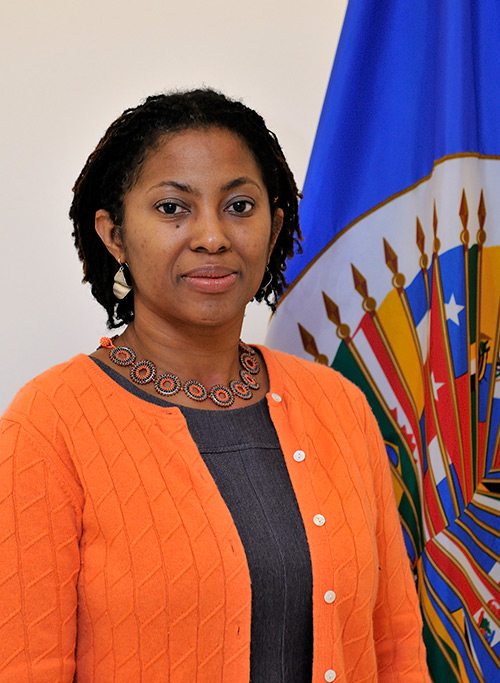
Tracy Robinson
Jamaïque
2012 - 2015
Commissioner Tracy Robinson is a citizen of Jamaica. She was elected at the 41st OAS General Assembly in June 2011 for the standard four-year term, which began on January 1, 2012. She was elected Chair of the Commission during the 150th Period of Sessions, post that she had from March 2014 to March 2015. She is a lawyer and teaches Gender and the Law, Constitutional Law and Commonwealth Caribbean Human Rights, among other law subjects, at the University of the West Indies, Mona, Jamaica. She has been a consultant for international agencies such as the United Nations Fund for Women and UNICEF, and she has advised Caribbean governments on topics related to legislation on gender and children rights, among others. Commissioner Robinson has been editor of the Caribbean Law Bulletin and she has written and published reports on a range of topics, including gender, the rights of LGTBI persons, sexual harassment, sexual rights, sex work and the law, and the rights of the child. She has a Bachelor of Law from University of the West Indies and an LLM from the University of Yale, as well as a Bachelor of Civil Law (BCL) from Oxford University.
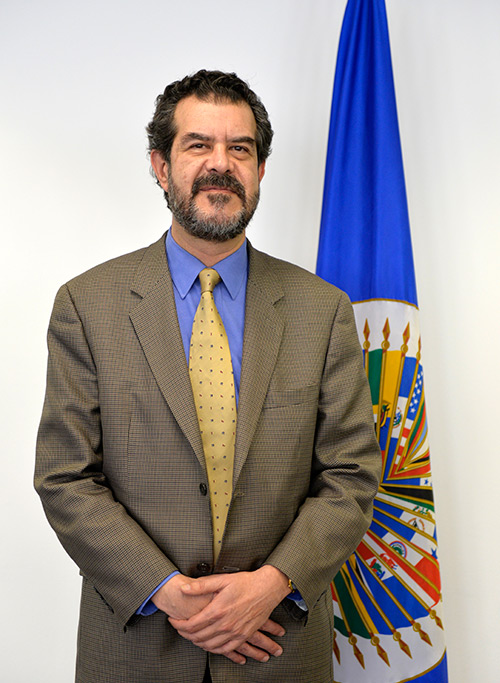
Felipe González
Chili
2008 - 2015
Commissioner Felipe González is a citizen of Chile. He was elected during the 37th regular period of sessions of the OAS General Assembly in 2007 for the standard four-year term, which began on January 1, 2008. He was reelected in 2011 for a second term, which started January 1, 2012. He was the IACHR President from March 2010 to March 2011. In the 154th Period of Sessions in March 2015, he was elected Second Vice-President. Commissioner González is Professor of International Human Rights Law and Constitutional Law at Chile’s Diego Portales University. He founded and directed that university’s Human Rights Center, where from 2002 to 2006 he managed the preparation and publication of an Annual Report on Human Rights in Chile. He also founded and coordinated a Latin American Network of Legal Human Rights Clinics. He is S.J.D. from the Carlos III University of Madrid, and he holds a Master of Law degree from American University and a Master of Advanced Human Rights Studies from Carlos III University. He is a Professor at the Academy on Human Rights and Humanitarian Law at American University and a Visiting Professor at Carlos III University. Previously he has been a Visiting Professor at the University of Wisconsin, Lund University, the University of Deusto, and the University of Alcalá de Henares. He also worked for the International Human Rights Law Group (now Global Rights), first in Washington, D.C., and then in Santiago, Chile.
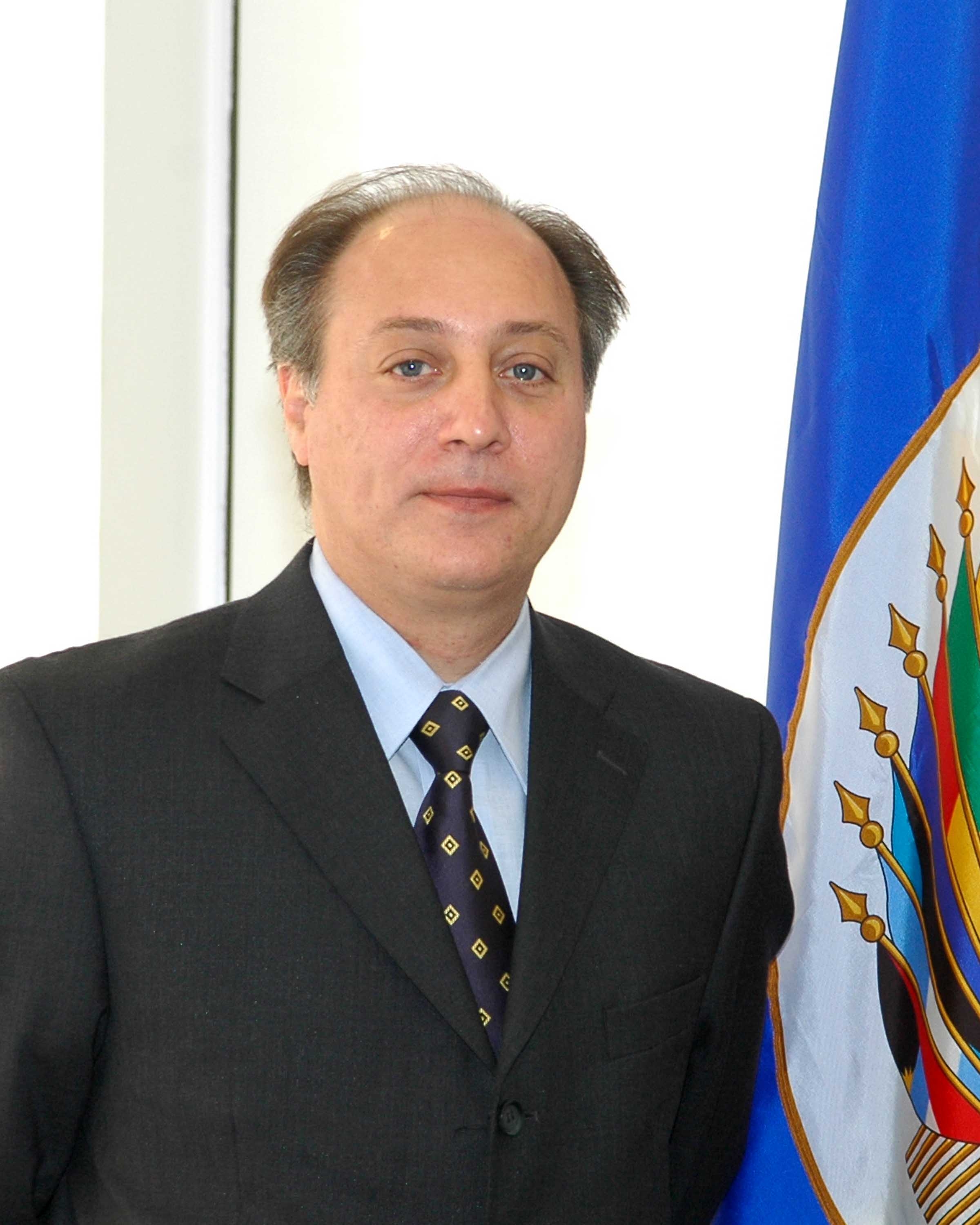
Victor E. Abramovich
Argentine
2006 - 2009
Víctor Abramovich fue elegido Comisionado de la CIDH por la Asamblea General de la OEA en junio de 2005. Asumió como Comisionado el 1 de enero de 2006 y ejerció esa función por el período de cuatro años para el cual fue electo, culminando su gestión el 31 de diciembre de 2009. Fue Segundo Vicepresidente de la CIDH en 2007. Víctor Abramovich es abogado por la Facultad de Derecho y Ciencias Sociales de la Universidad de Buenos Aires (UBA) y tiene una maestría en derecho internacional de la Facultad de derecho de American University de Washington, D.C. Ha completado además numerosos cursos de especialización en derechos humanos y derecho civil en Inglaterra y España. Fue Director Ejecutivo del Centro de Estudios Legales y Sociales de Argentina, consultor del Banco Interamericano de Desarrollo, asesor legal de la Defensoría del Pueblo de la ciudad de Buenos Aires y consultor del Instituto Interamericano de Derechos Humanos, entre otros. Ha sido profesor de derechos humanos en la Facultad de Derecho de la UBA y de la Universidad Nacional de Lanus, y profesor visitante de American University y de la Universidad Andina “Simón Bolívar” de Ecuador. Es autor de varias publicaciones especializadas, particularmente sobre derechos económicos, sociales y culturales. En abril de 2010, el Mercosur designó a Víctor Abramovich para el cargo de Secretario Ejecutivo del Instituto de Políticas Públicas de Derechos Humanos del Mercosur.
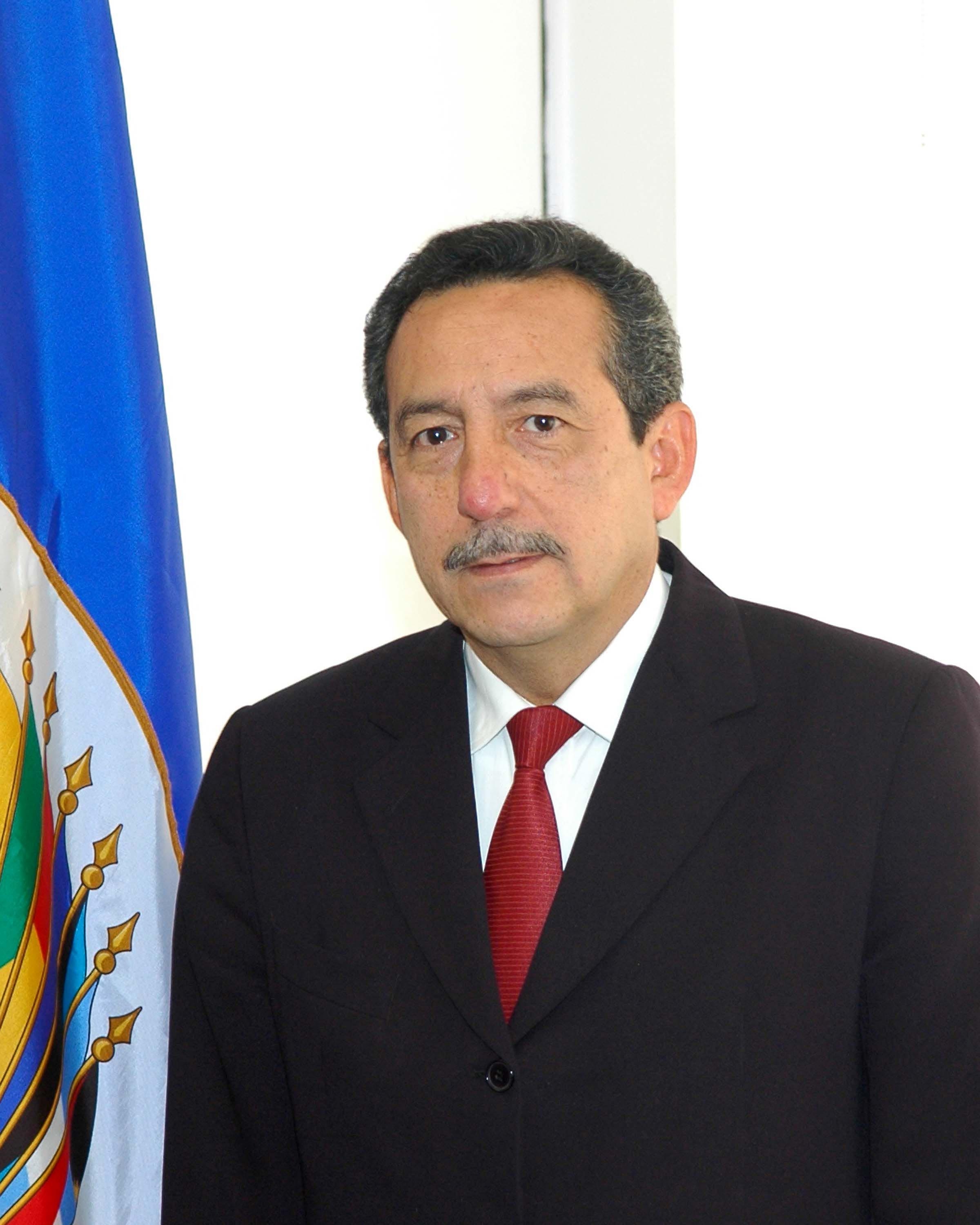
Florentín Meléndez
Le Salvador
2004 - 2009
Florentin Meléndez a été élu commissaire de la CIDH par l'Assemblée générale de l'OEA en juin 2003. Il a pris ses fonctions le 1er janvier 2004 pour un mandat de quatre ans. Il a été réélu pour un second mandat, mais a démissionné après avoir pris ses fonctions en juillet 2009 en tant que vice-président de la Chambre constitutionnelle de la Cour suprême de justice d'El Salvador. Sa démission a pris effet le 31 décembre 2009. Florentín Meléndez est titulaire d'un doctorat en droit international des droits de l'homme, d'un master en droits de l'homme de l'université Complutense d'Espagne et d'une licence en sciences juridiques de l'université nationale d'El Salvador. Il donne des cours et des séminaires sur les droits de l'homme, le droit international et le droit constitutionnel et est invité à donner des conférences dans plusieurs universités du continent. Il a travaillé aux Nations unies et dans des institutions publiques et privées de son pays sur des questions relatives aux droits de l'homme. Il a publié des livres, des études et des compilations sur les droits de l'homme.
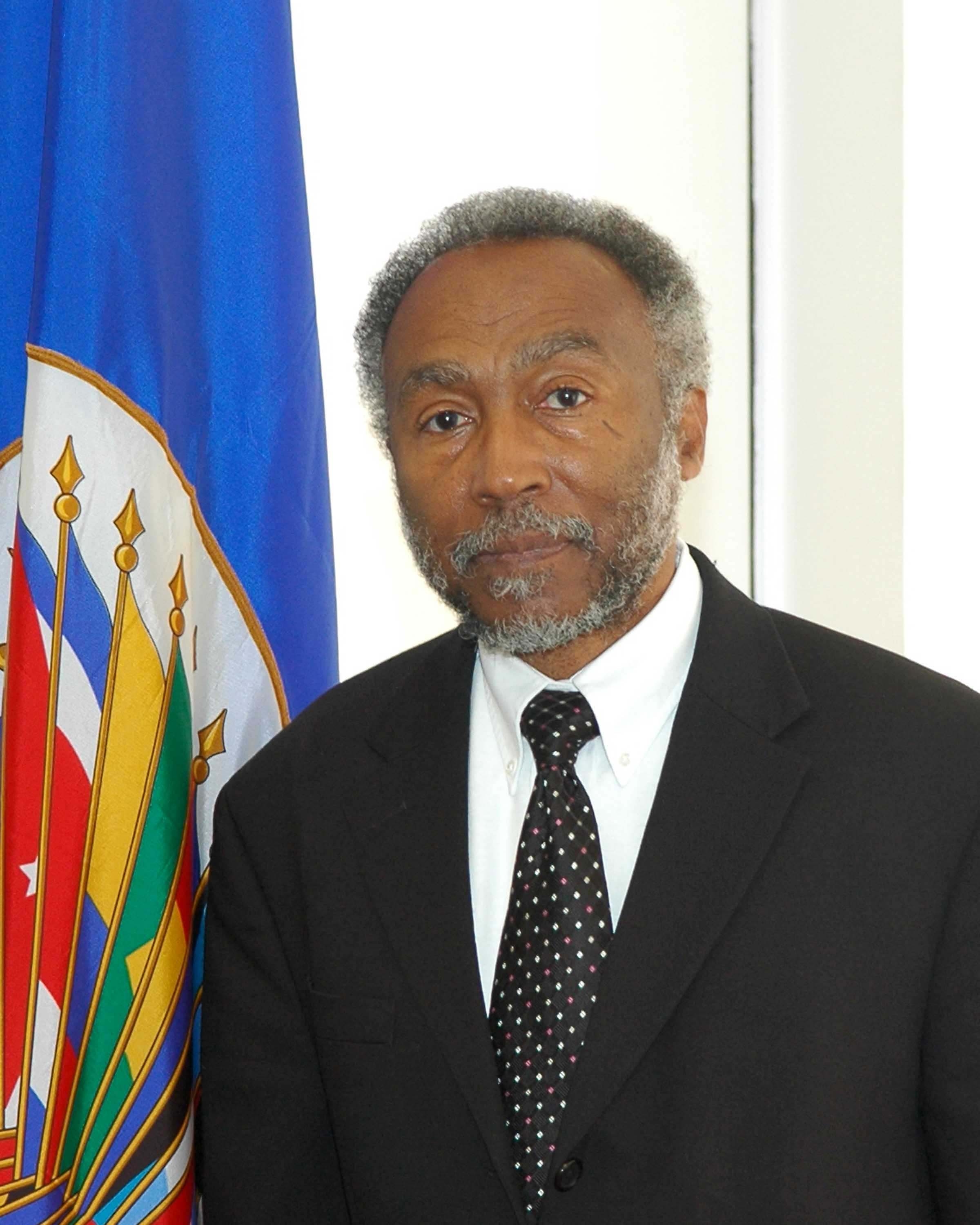
Sir Clare Kamau Roberts
Antigua-et-Barbuda
2002 - 2009
Clare K. Roberts a été élu commissaire de la CIDH par l'Assemblée générale de l'OEA en juin 2001. Il a pris ses fonctions le 1er janvier 2002 et a été réélu pour un second mandat, qui s'est achevé le 31 décembre 2009. Il a été président de la CIDH en 2005, premier vice-président en 2004 et deuxième vice-président en 2003. Sir Clare K. Roberts a occupé de hautes fonctions dans son pays, notamment celles de procureur général et de ministre de la justice et des affaires juridiques de 1994 à 1997. Il est membre de l'Association internationale du barreau et de l'Association interaméricaine du barreau ; il est également membre associé de l'American Bar Association.
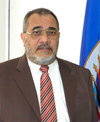
Freddy Gutiérrez Trejo, Venezuela 2004-2007

Evelio Fernández
Arévalos, Paraguay
2004-2007
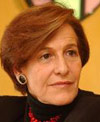
Susana Villarán de la Puente, Perú
Marzo 27, 2002-2004
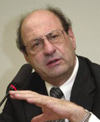
José Zalaquett
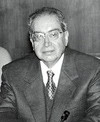
Julio Prado Vallejo, Ecuador 2000-2003
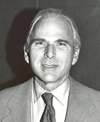
Robert K. Goldman, Estados Unidos
1996-2003

Juan Méndez, Argentina 2000-Sept. 2003
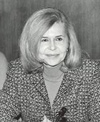
Marta Altolaguirre Larraondo, Guatemala 2000-Ago. 2003
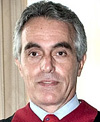
Diego García Sayán, Perú Ene. 1-Feb. 13, 2002
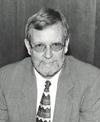
Peter Laurie, Barbados 1999-2001
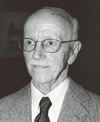
Hélio Bicudo, Brasil 1998-2001

Claudio Grossman,
Chile 1994-2001
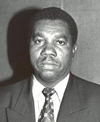
Jean Joseph Exumé,
Haití 1996-1999

Carlos Ayala Corao, Venezuela 1996-1999
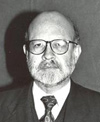
Alvaro Tirado Mejía, Colombia 1992-1999
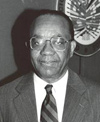
Henry Forde, Barbados 1998-1999
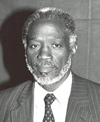
John S. Donaldson, Trinidad y Tobago
1994-1997

Michael Reisman, Estados Unidos Ago. 22,
1990-1995
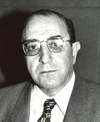
Oscar Luján Fappiano, Argentina 1990-1997
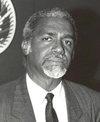
Patrick Lipton Robinson, Jamaica 1988-1995
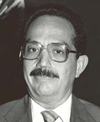
Leo Valladares Lanza, Honduras 1988-1995
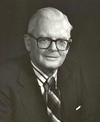
John Reese Stevenson, Estados Unidos
1988-Mayo 24, 1990
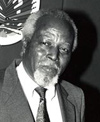
Oliver Hamlet Jackman, Barbados 1986-1993
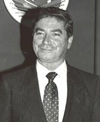
Marco Tulio Bruni-Celli, Venezuela 1986-1993
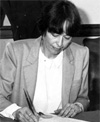
Elsa Kelly, Argentina 1986-1989

Gilda Maciel Correa Russomano,
Brasil 1984-1991
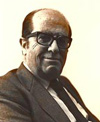
Luis Adolfo Siles, Salinas, Bolivia 1984-1987

Bruce McColm, Estados Unidos 1984-1988
Luis Demetrio Tinoco Castro, Costa Rica
1980-1985
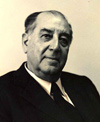
César Sepulveda, México 1980-1985
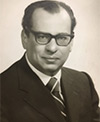
Francisco Bertrand Galindo, El Salvador 1980-1987

Marco Gerado Monroy Cabra, Colombia
1978-1987
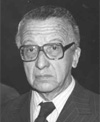
José Joaquín Gori, Colombia 1976-1978

Tom J. Farer, Estados Unidos 1976-1983
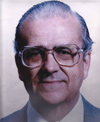
Fernando Volio Jiménez, Costa Rica 1976-1979
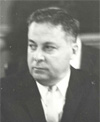
Carlos García Bauer, Guatemala 1976-1979
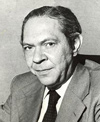
Andrés Aguilar, Venezuela 1972-1985
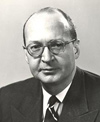
Robert F. Woodward, Estados Unidos
1972-1976
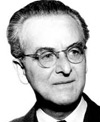
Genaro R. Carrió, Argentina 1972-1976
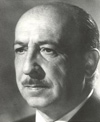
Justino Jiménez de Arechega, Uruguay 1968-1972
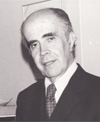
Mario Alzamora Valdez, Perú 1968-1972
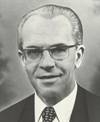
Carlos A. Dunshee de Abranches, Brasil
1964-1983

Daniel Hugo Martins, Uruguay 1964-1968
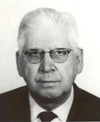
Gabino Fraga, México 1960-1979
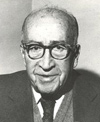
Manuel Bianchi Gundián, Chile 1960-1976

Durwood V. Sandifer, Estados Unidos
1960-1972
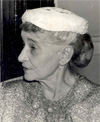
Angela Acuña de Chacón, Costa Rica 1960-1972
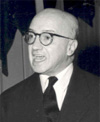
Gonzalo Escudero, Ecuador 1960-1968

Reynaldo Galindo Pohl, El Salvador 1960-1964

Rómulo Gallegos, Venezuela 1960-1963

